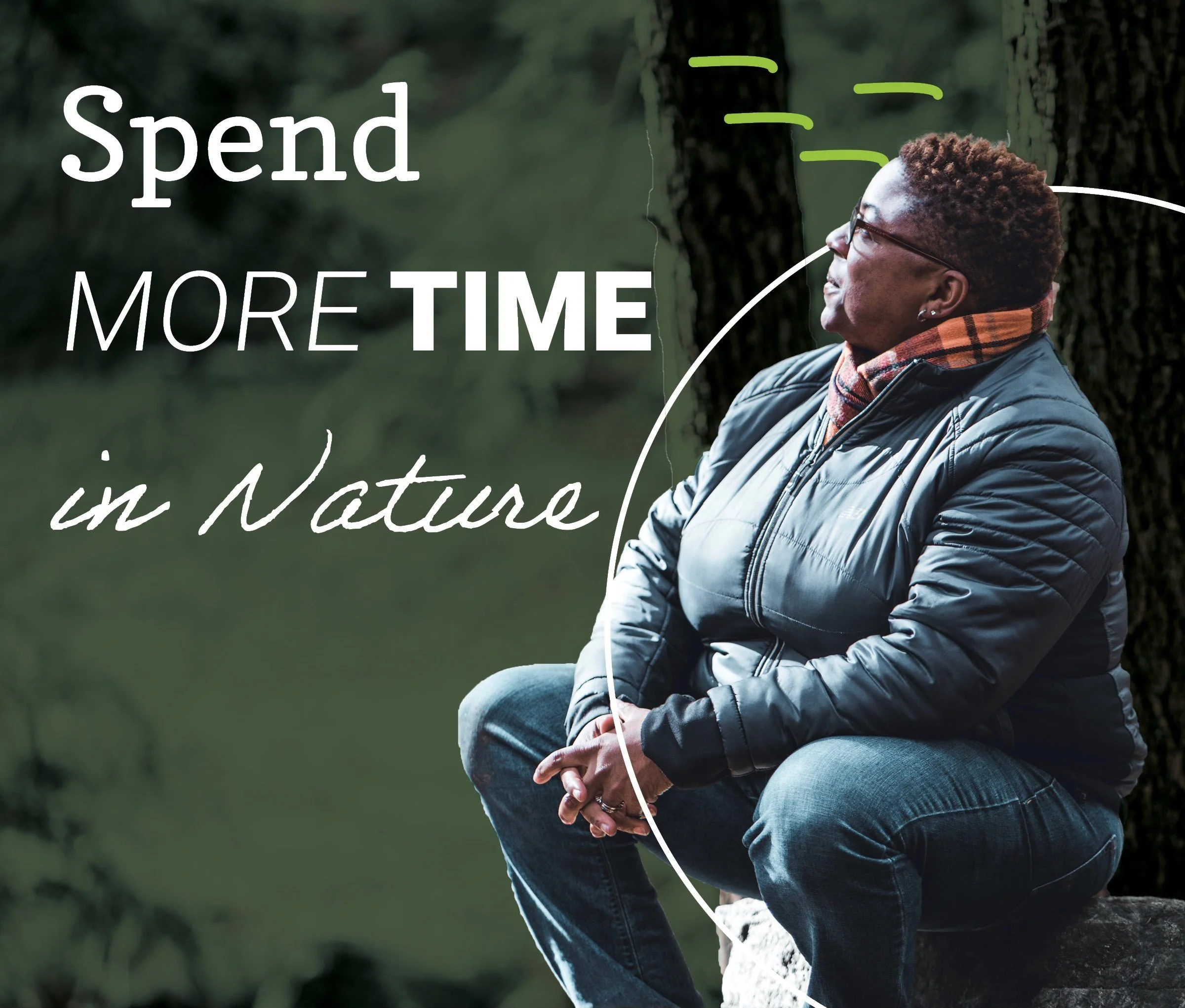Spend More Time in Nature
This #mentalhealthmonth, LifeWays, along with Mental Health America, invites you to #LookAroundLookWithin to learn about how your surroundings can impact mental health.
Spending time in nature is linked to many positive mental health outcomes, including improved focus, lower stress, and better mood.
PLANTS & GREEN SPACE
Seventy percent of respondents to a Mental Health America Connection Survey reported wishing they had more time outdoors, ideally in nature away from their neighborhoods. Cities often have more stressors to physical and mental health, but green space (like parks and gardens) can reduce their impact.
WHAT CAN I DO TO FIND GREEN SPACE?
Don’t discount the little things.
While being in the wilderness is especially nice, even city parks, a small garden, or sitting under a tree can support your mental health.
Bring the outdoors in.
Adding greenery to your space can have a similar effect to seeing plants outdoors – and some, like snake plants and bamboo palms, can purify your air.
NATURAL LIGHT
Sunlight triggers the release of serotonin and vitamin D, which are associated with boosting mood and focus and reducing stress. Without enough sun, these levels can drop, leading to symptoms of depression, anxiety, and other mental health challenges. Light exposure also has a direct impact on your body’s sleep-wake cycle, and consistent sleep is one of the most important factors in your well-being.
WHAT CAN I DO TO GET NATURAL LIGHT?
Enjoy the sunshine.
Just 10-15 minutes of sun on your arms and legs a few times a week has the potential to generate all the vitamin D you need; however, this depends on factors like the season, time of day, pollution, skin tone, and more.
Try a light box.
Light therapy can help with symptoms of depression and sleep disorders. The bright light from a light box mimics natural sunlight, causing the brain to produce serotonin and regulate your internal clock.
CONNECTION
One of the greatest benefits you get from nature is connection, which is linked to a better connection to self, community, and purpose. Time in nature benefits personal growth, self-esteem, emotional regulation, and social skills. When children connect with nature, they’re more imaginative and independent, and they feel more connected to the peers they’re playing with and other living things.
WHAT CAN I DO TO CONNECT?
Plant something.
Gardening is a great mindfulness activity. Getting your hands in the dirt can help you feel more grounded, and helping a plant grow can even boost your self-esteem.
Practice gratitude.
Nature is everywhere – even in cities, you can find places like community gardens, little courtyards, or trees full of birds and squirrels. Once you start tuning into your senses and appreciating the unexpected, it often feels more meaningful.
---
Source: Mental Health America


